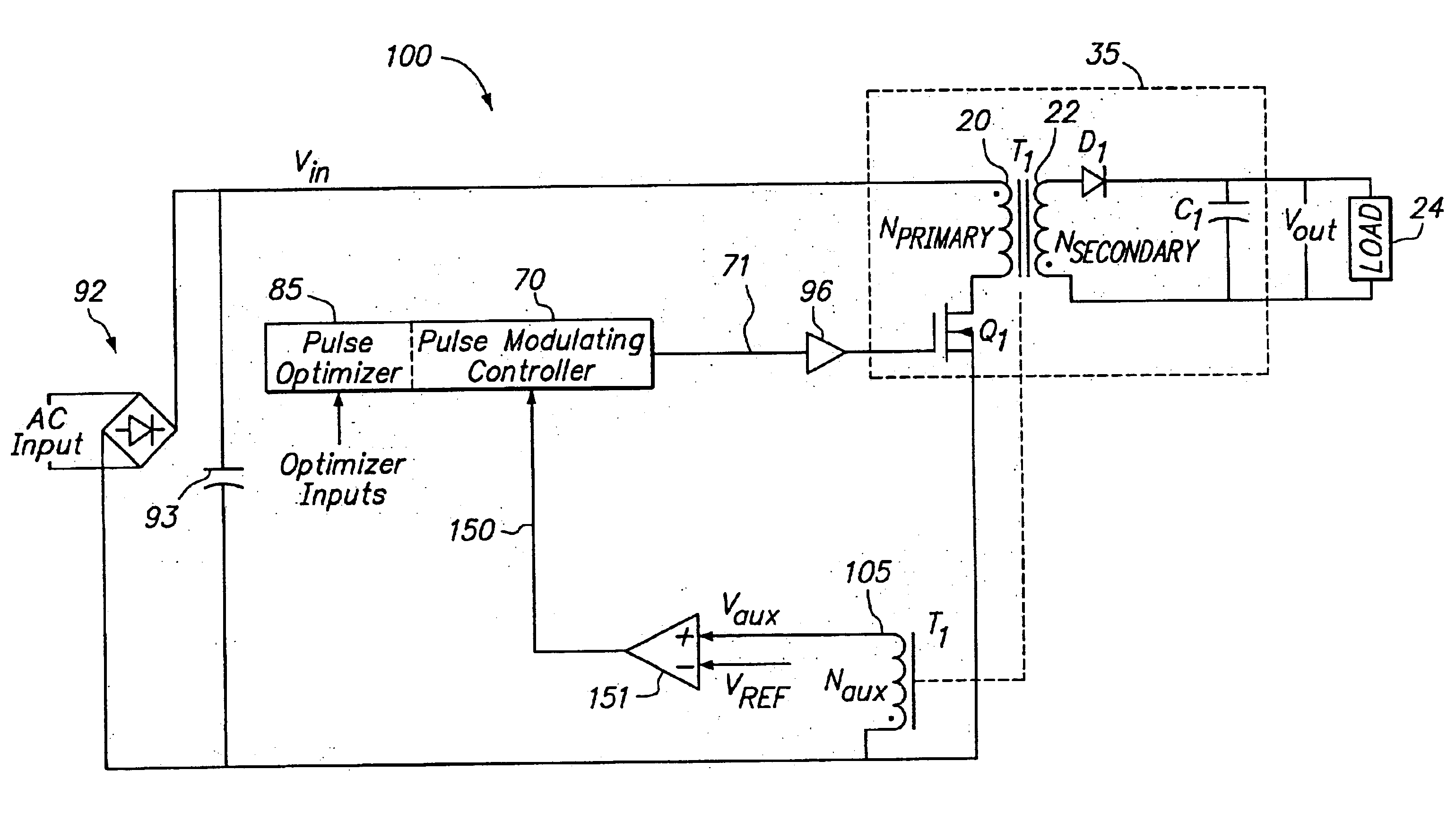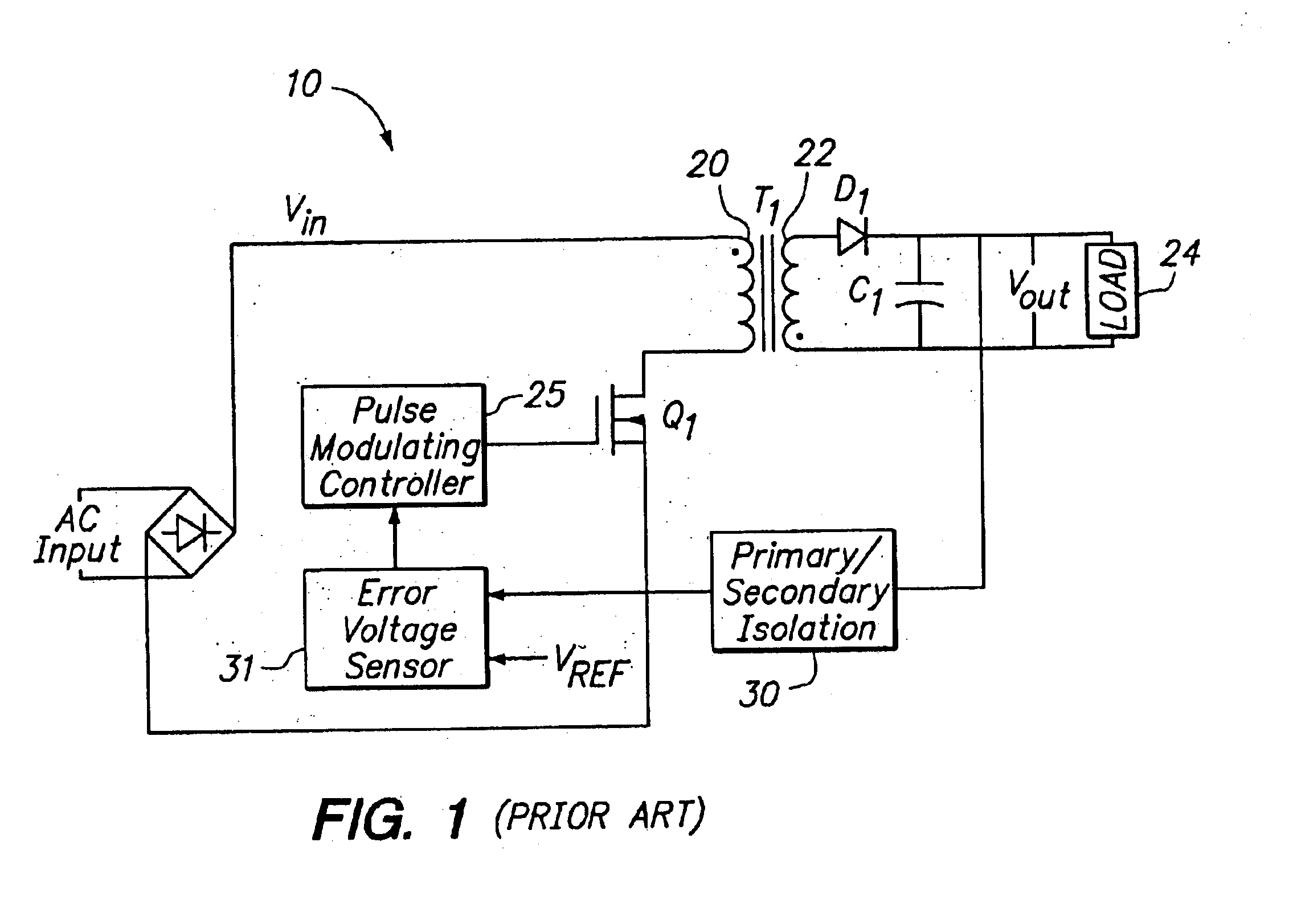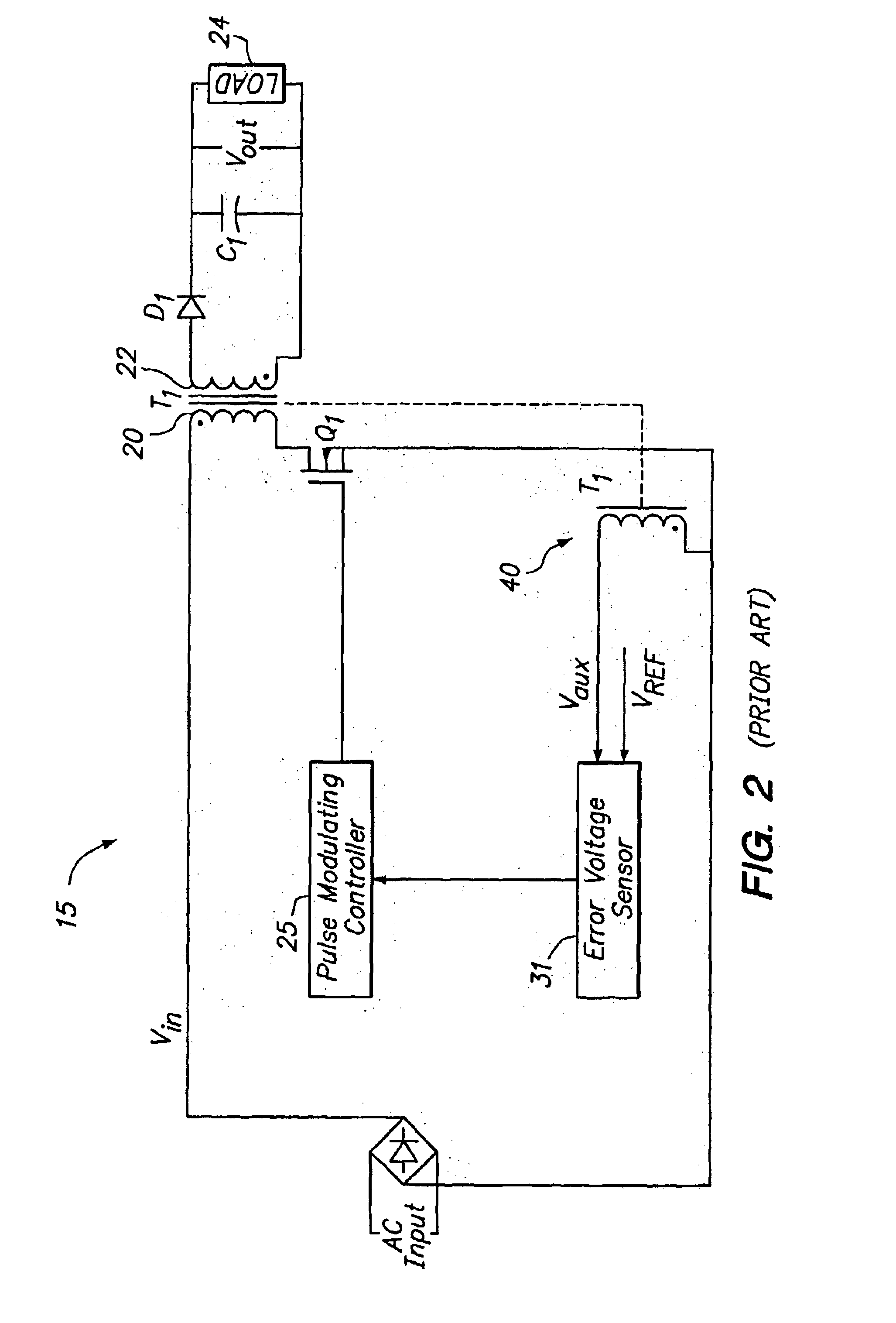PWM power converter controlled by transistion detection of a comparator error signal
a technology of comparator error and power converter, which is applied in the direction of electric variable regulation, process and machine control, instruments, etc., can solve the problems of reducing the cost and complexity increasing the complexity and cost of the control system, and introducing difficulties in regulation accuracy
- Summary
- Abstract
- Description
- Claims
- Application Information
AI Technical Summary
Problems solved by technology
Method used
Image
Examples
Embodiment Construction
[0034]It will be apparent to those skilled in the art that the power converter control system methodologies and embodiments disclosed and described herein may be applied to transformer-coupled switching converters, such as a flyback, forward, fly-forward, push-pull, or bridge-type power converters. In addition, as will be explained herein, direct-coupled switching power converters such as buck, boost, buck / boost or SEPIC power converters may also benefit from these control methodologies and embodiments.
[0035]The above-incorporated U.S. Pat. No. 6,275,018 discloses and describes various embodiments of a “pulse rate” (also referred to as “pulse train”) method of power converter regulation. Notably, pulse rate regulation, in itself, controls neither the ON TIME nor the OFF TIME of the power switch in order to regulate the output voltage. Instead, output regulation may be accomplished by controlling the rate of independently specified activation pulses presented to the power switch. If ...
PUM
 Login to View More
Login to View More Abstract
Description
Claims
Application Information
 Login to View More
Login to View More - R&D
- Intellectual Property
- Life Sciences
- Materials
- Tech Scout
- Unparalleled Data Quality
- Higher Quality Content
- 60% Fewer Hallucinations
Browse by: Latest US Patents, China's latest patents, Technical Efficacy Thesaurus, Application Domain, Technology Topic, Popular Technical Reports.
© 2025 PatSnap. All rights reserved.Legal|Privacy policy|Modern Slavery Act Transparency Statement|Sitemap|About US| Contact US: help@patsnap.com



